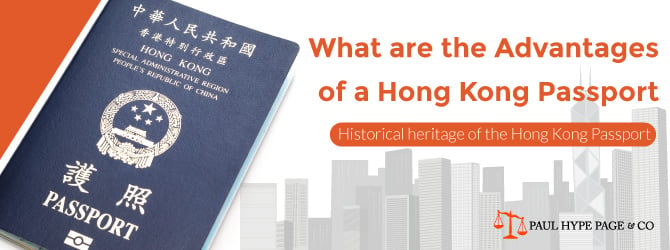Secondary employment in Hong Kong refers to taking on an additional job outside of one’s primary employment. This article explores the legal implications, responsibilities of employees in secondary employment and other aspects of secondary employment in Hong Kong, offering guidance on how to manage secondary employment as an employer or employee.
Employment Age
One should be 18 years and above to work in Hong Kong. However, young persons aged 13 – 17 years can be employed, although there are restrictions on the type of work that children and young persons can perform. In Hong Kong, there is no mandatory retirement age though the practice has been usually between ages 60 – 65 years.
Employment Ordinance
Employment Ordinance is the primary legislation that guides the terms and conditions of employment laws in Hong Kong. In 1968, The Employment Ordinance was enacted, and the protection employees receive under the Employment Ordinance has improved immensely covering a range of employment benefits such as:
- Wage Protection
- Rest Days
- Holidays with Pay
- Paid Annual Leave
- Sickness Allowance
- Maternity Protection
- Statutory Paternity Leave
- Severance Payment
- Long Service Payment
- Employment Protection
- Termination of Employment Contract
- Protection Against Anti-Union Discrimination
If you are a foreign employer that is new to the Hong Kong market, it is common to not have any prior knowledge regarding the employment regulations. Before employing Hong Kong citizens, it would be advisable to speak with a professional HR agency to draft up the right contracts for future employees.
Apart from being an accounting firm, Paul Hype Page has HR agencies with the relevant knowledge to help plan your employment contracts.
Employment Ordinance in Hong Kong covers all employees regardless of whether they are full-time, part-time, or temporarily employed. In some cases, employees do not usually fall under the employment ordinance. If so, then a contractual agreement which stipulates the terms and conditions between employer and employee must be included.
The Employment Ordinance applies to all employees except for the following:
- A family member who lives in the same residence as the employer
- An employee as defined in the Contracts for Employment Outside Hong Kong Ordinance
- An employee working under a crew agreement under the Merchant Shipping (Seafarers) Ordinance, or onboard a ship not registered in Hong Kong; and
- A contract of apprenticeship registered under the Apprenticeship Ordinance, other than specific provisions of the Employment Ordinance.
Responsibilities of employees in Secondary Employment in Hong Kong
Some of the obligations that employees who are willing to engage in secondary employment include the following:
- Not acting in ways that seem to deceive the employer
- Being confidential and not seeking ways to destroy the primary employer’s job
- Maintaining an incredible work ethic that does not have an impact on primary and secondary jobs
- Keeping conversations open and working in good faith
As a secondary employee, you might also be looking into starting your own side business. To prevent violating any laws such as visa issues, overlapping regulations, and solicitation, you can speak to a professional service provider such as Paul Hype Page for more understandings regarding the regulations.
The incorporation process is tedious, thus engaging Paul Hype Page to provide you with such services will ease your hassles when starting your own business.
Secondary Employment in Hong Kong
In Hong Kong, there are no specific laws relating to the protection of secondary employees. A secondary employee and a full-time worker will enjoy the same statutory entitlements, provided they are engaged in an ongoing contract that lasts for 18 hours or more, over four or more consecutive weeks. Since part-time and full-time employees have the same rights under the Employment Ordinance, it is therefore imperative for an employee to know and understand the following:
Contract of Employment
The arrangement of agreement can either be oral or written. Terms of the contract of employment should be drafted or agreed upon so as not to violate the Employment Ordinance; otherwise, the terms of the settlement of agreement would be termed illegal.
It is mandatory that before an employee begins working, is informed of the conditions of employment about:
- wages
- wage period
- length of notice required before the contract is terminated, and lastly, the employee be granted an end of year payment,
The Employment Ordinance mandates every employer to keep a record setting out the wage and employment history of each employee for the preceding 12 months that the employee has worked; otherwise, the employer might be liable to a fine of $10,000.
As an employer, if you are unsure of how to go about employees getting secondary employment, it would be advisable to engage with Paul Hype Page for assistance. We know about the employment laws and regulations that you need when dealing with secondary employment.
Conclusion
Secondary employment is any work that you engage in besides your primary job. The Employment Ordinance is the principal legislation that determines the terms and conditions that govern employment laws in Hong Kong.
The Employment Ordinance does not prohibit Secondary Employment, but there are specific guidelines one must adhere to if he or she wants to engage in secondary employment. Under the Employee Ordinance, a secondary employee and a full-time worker will enjoy the same statutory entitlements, provided they are engaged in an ongoing contract that lasts for 18 hours or more, over four or more consecutive weeks. Thus, whether you are intending to be a secondary employee or employer in Hong Kong, you should note that the same Employment Ordinance that governs the primary employees and employers will also apply to you.
FAQs
No. There are no specific rules that are designated for part-time that are different from full-time employees in Hong Kong. However, an institution can draft its contract for the part-time or a one–time contract for its employees to sign if they agree with the terms.
Irrespective of the country, secondary employment is an occupation that one engages in either temporarily or permanently to earn additional income to supplement their primary jobs.
Young individuals aged 13 – 17 years can be employed, but there are restrictions on the type of work that children and young persons can perform. To be working in every industry, one should be at least 18 years of age.
- Wages
- Wage period.
- Length of notice required before the contract is terminated, and lastly, the employee be granted an end of year payment
- Being confidential about their primary employment, and not destroy the primary employer’s job
- Possess an incredible work ethic to have a distinct difference for his/her primary and secondary jobs.







